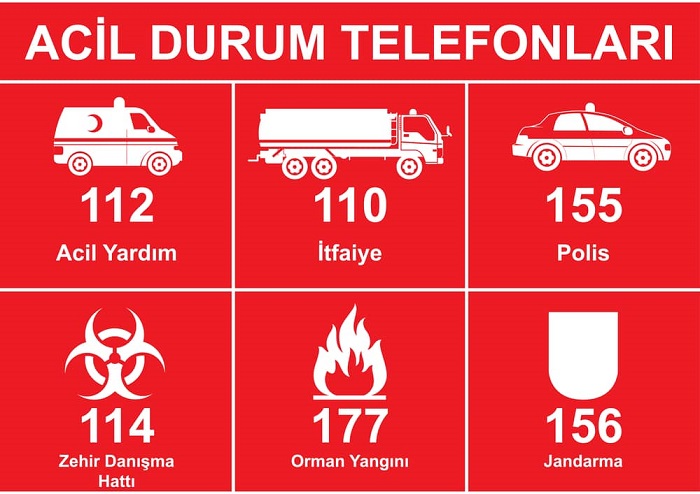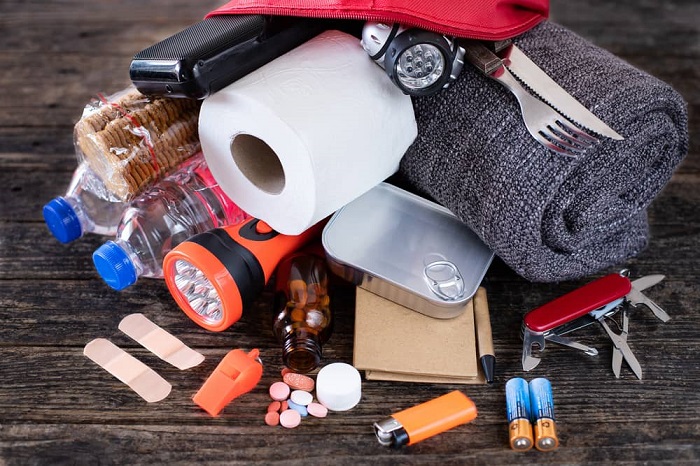
A Guide to Living with Earthquakes in Turkey
Living with Earthquakes in TurkeyPlenty of sunshine, wonderful beaches, friendly people, abundant and delicious fresh produce – there are so many things to love about life on the Turkey’s Turquoise Coast. If you are thinking about moving to Antalya full-time, however, it’s important to remember that life isn’t always perfect.
One thing many people are surprised to hear when they are considering buying a home in Antalya is that earthquakes are a fact of life here. By far the majority are minor and cause no damage – most expats soon get used to them. But the first time the sofa shakes beneath you during a tremor can be frightening, so it’s worth understanding what’s happening and taking a few precautions.
What is an earthquake?
An earthquake happens when the earth’s tectonic plates move suddenly, releasing energy that travels in waves through the planet’s crust. This causes the shaking we feel.
Turkey sits on the North Anatolian fault line, which is why it experiences more earthquakes than other nations such as the UK. The worst in recent times happened near Izmir in October 2020, with a magnitude of 6.6 – 7.0. There was extensive damage throughout the region and more than a hundred people lost their lives.
Fortunately, such disasters are a rarity. Most earthquakes in the area are of much lower magnitude and are generally regarded as a good thing – it’s believed smaller releases of pressure on a regular basis stops larger eruptions building up.

How can you prepare for an earthquake?
There are a few things you can do to ensure you’re ready for a tremor:
- Fit latches to your cupboard doors to stop them jolting open and spilling their contents. Broken glass and crockery are messy and a hazard you can do without.
- Avoid storing heavy items above head height as they could cause injury and damage if they fall. Keep cast-iron cookware and appliances at a lower level.
- Decide on a safe place to shelter. Your instinct may be to flee outside, but experts say it’s best to get down on the floor, ideally beneath a sturdy piece of furniture. Consider your options and work out where you would be safest in your home. Make sure everyone in your household knows what to do and where to go.
- Prepare emergency grab-bags for everyone. These should include bottled water, non-perishable food and a first aid kit, as well as a torch, spare batteries, a warm blanket, some cash, a whistle, and a notebook and pen. If anyone takes medication, such as blood pressure tablets or insulin, keep spare supplies in there. If there’s a baby in the house, you should also pack items such as nappies, wipes, formula milk and feeding bottles, or canned baby food.
- Make copies of important documents such as your passport, resident’s permit and insurance certificates and keep them together in your grab-bag. Write out a list of important telephone numbers and put that in there too; if there’s no power, you won’t be able to charge your mobile phone to access your contacts.

What to do if it happens
First of all, try to stay calm. If you’re at home and it’s safe to do so, switch off your gas, electricity and water supplies in that order. Go to the safe space you’ve already identified and crawl into it. Curl up and cover your head with your hands or hold onto something and wait it out.
If you’re outside, crouch down and protect your head with your hands. Keep away from buildings, trees, power lines or anything electrical.
After it’s over
If you’re at home and couldn’t do so before, switch off your utilities – gas, electric and water. However, if you can smell gas, leave the property immediately. Open cupboards carefully as loose items could fall out and break or cause injury. Take photographs of any structural damage for insurance purposes.
Be aware that there may be aftershocks. If you feel one, lie down somewhere safe. Don’t be tempted to go into damaged buildings to look for casualties – let the emergency services do their jobs. Follow any official advice that is given and keep yourself safe.
The Turkish Building Earthquake Code
Don’t let the thought of an earthquake put you off buying your dream home in Antalya. As the saying goes, there’s a greater risk of being involved in a road traffic accident – it’s really not something that should worry you unduly. It’s more a matter of being aware, just in case.
In addition, the Turkish Building Earthquake Code sets out strict rules and regulations when it comes to building and construction – all new buildings have to meet exacting standards designed to reduce the effects of a tremor. Tests are carried out to ascertain how land will react to an earthquake before it can be approved for development, foundations have to be of a minimum depth and the materials used must be of a certain quality.
Property owners in Turkey also have to purchase mandatory DASK insurance, which means your home will be restored to its pre-earthquake state in the event of any damage. It also covers other natural disasters such as landslides and flooding as a result of a tsunami.
Thinking of investing in Antalya real estate?
The Properties Antalya team is happy to answer any questions you might have. We’d love to help you through the process, whether you’re considering a luxury villa in Kalkan as a holiday home or looking to move to Antalya full-time. You can see our current portfolio on our website, as well as check out our useful buyer’s guide.
